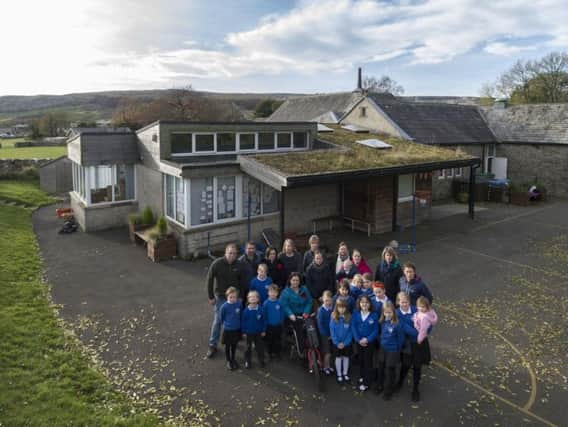Plea to diocese over Yorkshire's rural schools


Campaigners, who have launched an appeal against a decision to close a 300-year-old school, near Settle, have written to the chair of the Diocese of Leeds Board of Education calling for a new approach to small rural schools. It comes after North Yorkshire County Council’s executive decided to push ahead with plans to shut the tiny Church of England school in Horton-in-Ribblesdale last month.
Kerry Pilkington, from the Friends of Horton School, wrote: “Ask yourself in 10 to 20 years’ time while you take time to walk around the ‘Dales village’, with its rotting school and ageing population – is this the right decision we made back then?
Advertisement
Hide AdAdvertisement
Hide Ad“I look forward to hearing back from you and seeing some new ‘transparency and openness’ and hopefully a vision that will help restore a healthy balance to our ageing Dales communities long term, rather than a ‘quick win’.”
The letter was penned after the Rt Rev Dr Jonathan Gibbs wrote to The Yorkshire Post, explaining the reasons why the diocese supported the closure, including evidence that “it was not in the best interests of the children’s education to keep it open” due to the size of the school, which has just 12 pupils on the roll.
He also called for a wider discussion about the future of rural communities, stating: “If those up-the-Dale villages and their outlying farms are going to survive, then we need to work out what they need in order to do so and we need to make sure they get it.”
However, Mrs Pilkington argued that Horton School was the first of several Dales schools under threat of closure, writing: “surely taking the school out of these communities is a destructive thing to do?”.
Advertisement
Hide AdAdvertisement
Hide AdShe added: “Having schools and affordable homes and other ‘local enterprises’ will help encourage young families to re-populate these ageing communities.
“A healthy community has a balance across all ages; the councils, diocese and national parks all have a role to play in this and this is key.”
Horton parent Rachel Whitfield added: “A school is a primary source of interest for families looking to move to an area. You cannot have healthy rural development without access to a good community school.”
In response, Rev Gibbs told The Yorkshire Post: “The diocese wants to see as many of its schools as possible remain open, but we recognise that the local authority faces tough decisions about the allocation of scarce resources in a time of great financial stringency, and ultimate responsibility for decisions about closure rests with them. We believe the best strategy is to encourage schools to look for new ways of working together to share resources and reduce overhead costs.
Advertisement
Hide AdAdvertisement
Hide Ad"In the end however, parents make choices about where they send their children to school, and where too many choose other larger schools then this seriously undermines the viability of smaller schools. It is for this reason we are advocating the need for a much wider discussion about the future of rural communities, which must include the issue of adequate funding for small rural schools.”
The escalating crisis in the countryside with dwindling numbers of young families has been pinpointed as a priority by Richmondshire District Council, which has campaigned on the issue for a number of years.